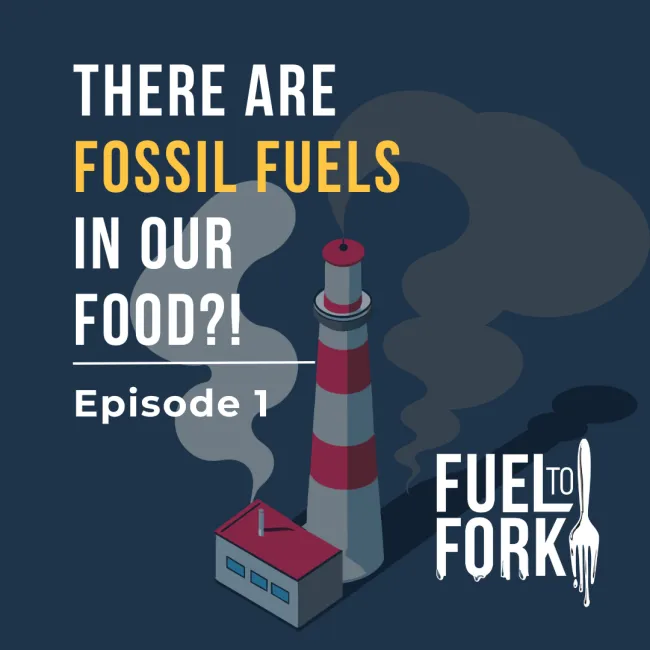
“For many of us, how fossil fuels are integrated across the food chain is highly invisible.”
When we bite into a juicy apple, barrels of crude oil and natural gas cylinders might not spring to mind. But fossil fuels are the hidden ingredient behind all of our food. From the diesel powering the tractors to the fertilizer in the field and plastic packaging, fossil fuels are the lifeblood of the food industry.
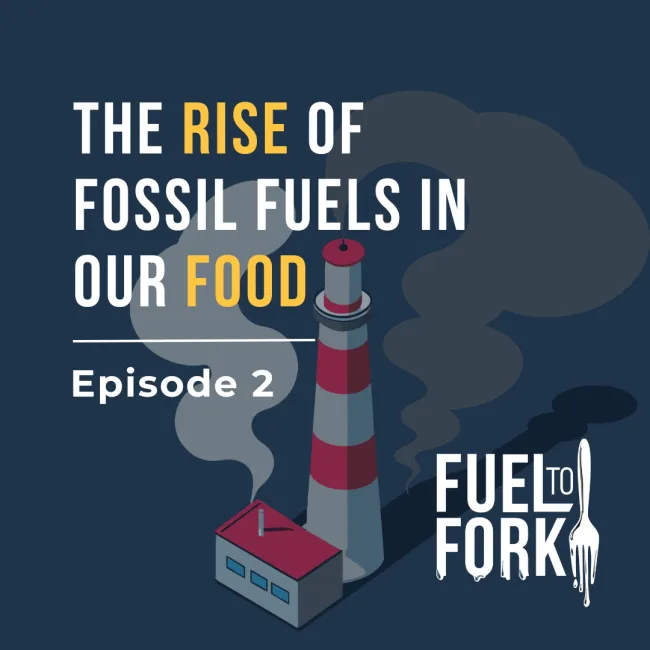
“Fertilizers used to more natural substances - wastes and bird dung."
How did fossil fuels become so embedded in our food systems? We trace this journey from the industrial extraction of guano, through the game-changing Haber-Bosch process, to today’s globalized food system. Along the way, we uncover the hidden impacts on biodiversity and human health—revealing the true cost of this reliance.
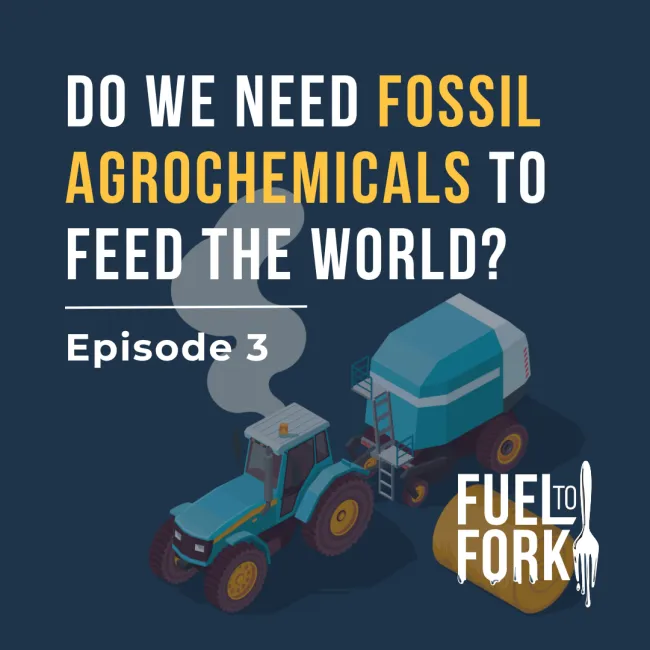
“The production and use of nitrogen fertilizers alone contributes more to the greenhouse gas effect than commercial aviation.”
There are many ways to reverse the trend of increasing fertilizer use - from curbing overuse and adopting alternative technologies to rethinking our diets and transforming farming practices. We explore a range of options to ease our dependency on fossil fueled agrochemicals.
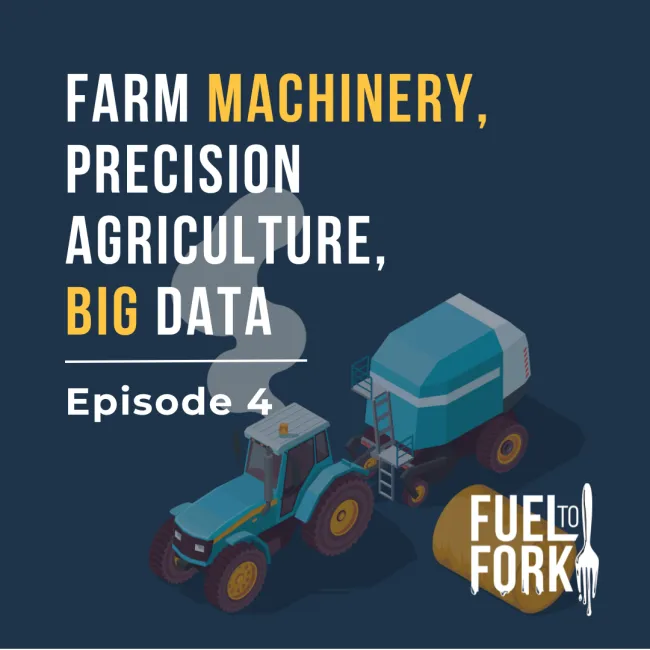
“In order to stay in farming, there's a tremendous spur to every year produce a little more than the year before.”
Fossil fuels are woven into nearly every aspect of modern agriculture - from powering farm machinery to creating plastics and supporting data-driven tech like precision agriculture. But what would it take to reduce, replace or even eliminate their use on farms?
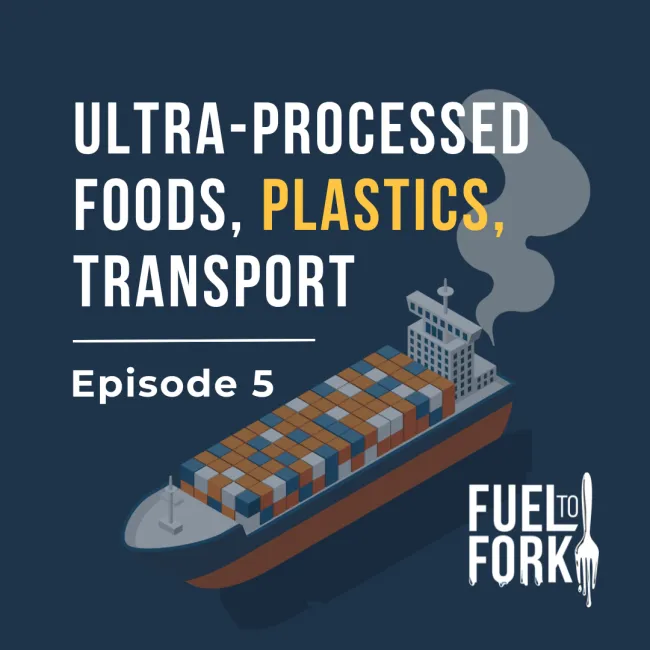
"The more important question is where aren't plastics in the food system."
When we talk about the future of food, we usually picture what's growing in the fields or what's on our dinner plates. But maybe we should pay a little more attention to everything happening in between. Processing and packaging consumes the largest share of fossil fuels in our food system— more than 40%.
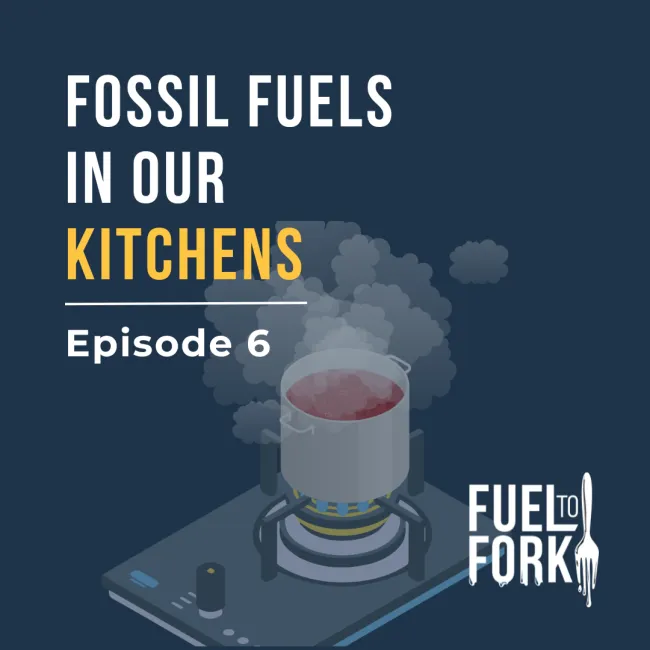
“Kitchens are the most energy intensive part of any commercial building.”
Fossil fuels are hiding in plain sight in our kitchens—powering stoves and cooling refrigerators. How can we reduce our reliance on fossil fuels in home and commercial kitchens across the world?
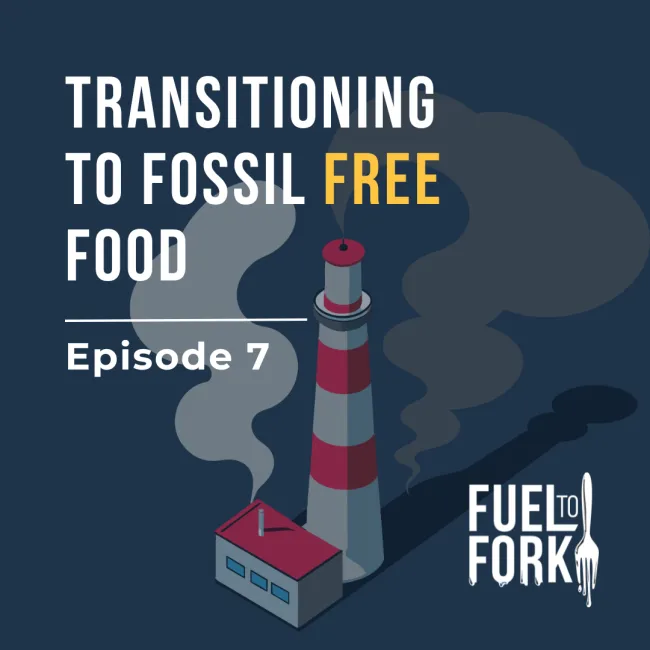
"This is not a spectator problem; it’s a collective one.”
What would a food system free of fossil fuels look like by 2050? What insights surprised the experts featured in this series? And what trade-offs must we navigate to shape this future? In our final episode, we shift from acknowledging the 'fossil fuel problem in food' to exploring actionable solutions.
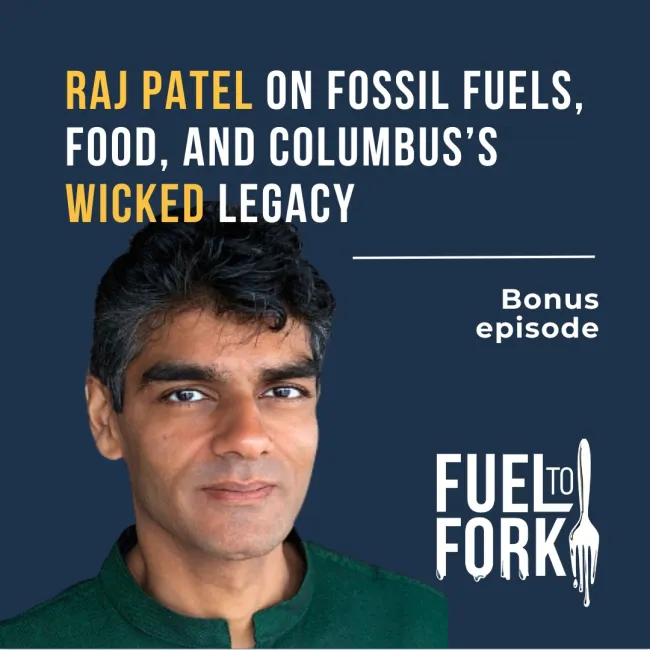
“That's not the food system. That's just the supply chain.”
What are the hidden costs of our current food system and its deep reliance on fossil fuels, a system that burdens citizens with financial, health and environmental consequences?
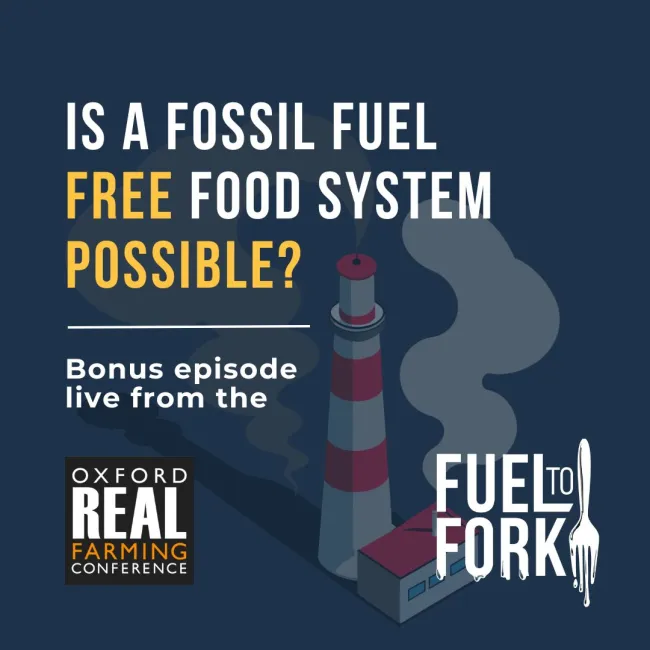
"As an organic farmer, we turned our back on the nitrogen fertilizers and pesticides nearly 40 years ago.”
In this live bonus episode recorded in Oxford, we ask a farmer, an economist and an researcher if it’s better to farm differently, eat differently, plug in better tech, restrain environmentally damaging practices of food and agribusinesses, or all of the above.
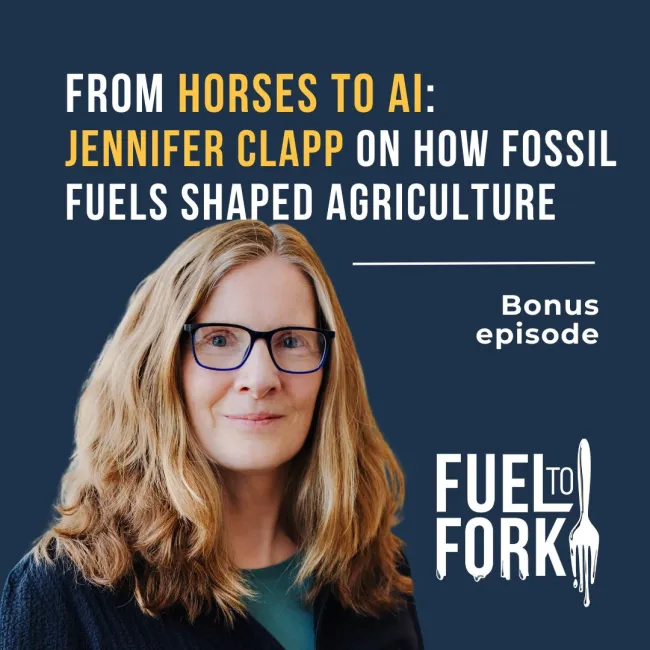
“They're all investing and developing products for precision and digital agriculture.”
Is the battle over who controls and owns agricultural data one of the most important—and least discussed—fights in 21st-century farming? In this bonus episode, we consider if data as the new agricultural input.

